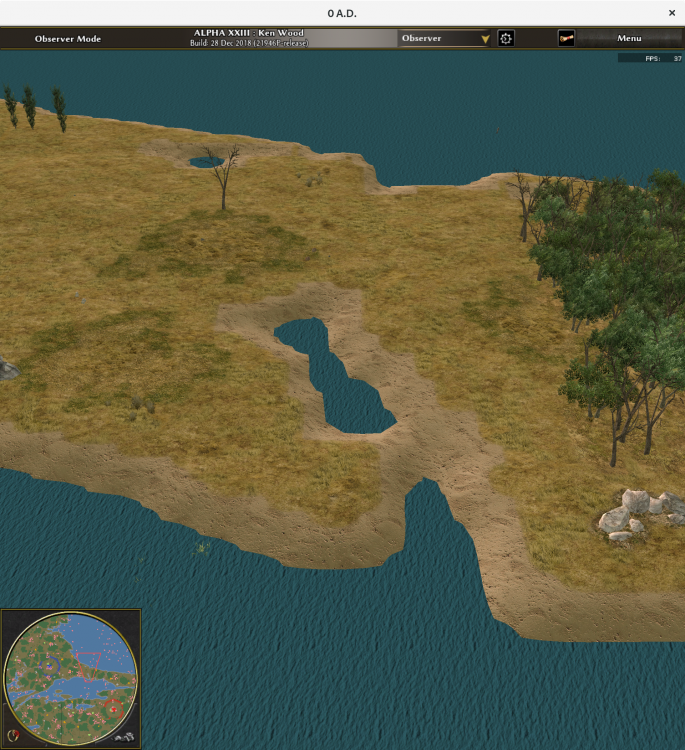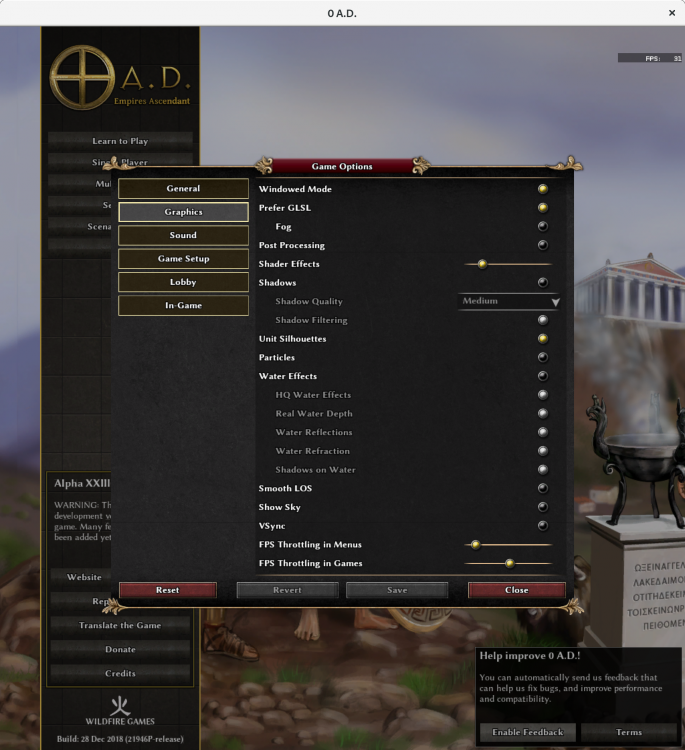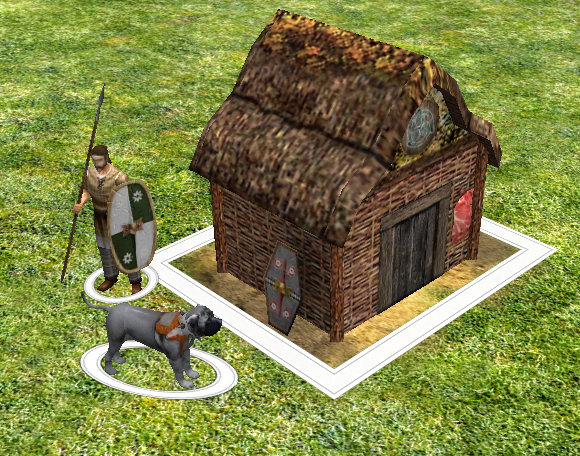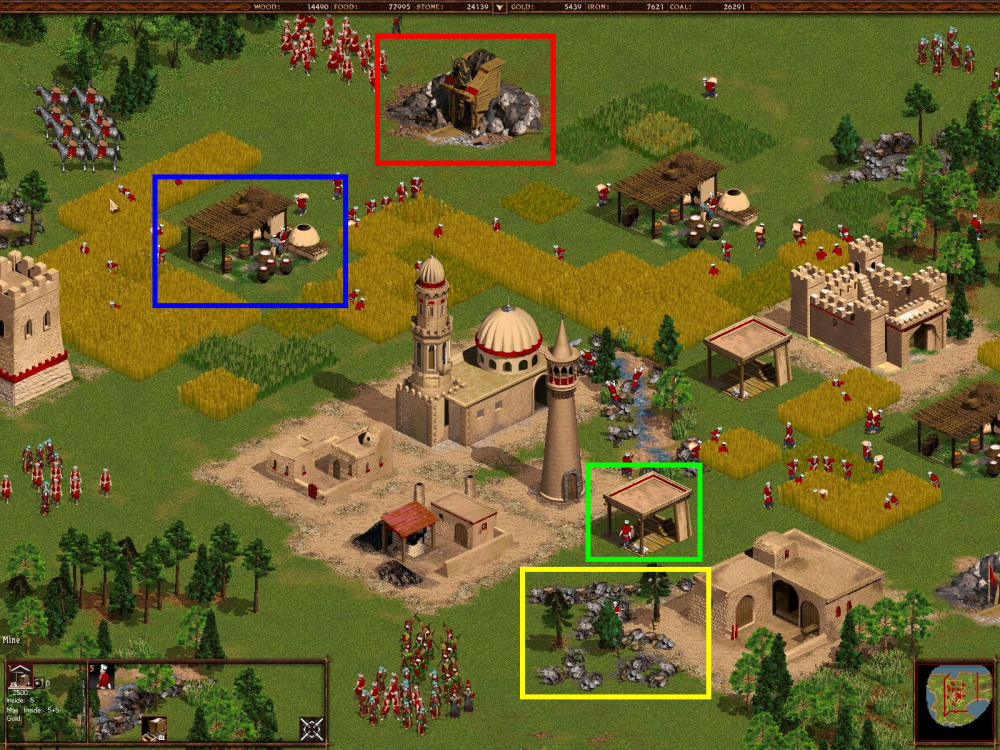-
Posts
2.300 -
Joined
-
Days Won
23
Everything posted by Nescio
-

===[COMMITTED]=== Carthaginian Unit Textures
Nescio replied to wackyserious's topic in Completed Art Tasks
In ancient contexts Libya is the continent west of the Nile (roughly equivalent to the modern term North Africa), whereas Africa is a fertile coastal region (roughly equivalent to modern Tunisia). Libyans could be applied to any people living in Libya, or it could mean the non-Greek, non-Punic, non-Roman population (Garamantes, Massylii, Masaesyli, Mauri, and other Berber tribes). Libyo-Phoenician is a modern term to describe the culture that includes both Berber (Libyan) and Canaanite (Phoenician) elements. The Romans did not distinguish between Carthaginians, Phoenicians, or Libyo-Phoenicians, all were simply called Poeni (Punics). Anyway, your actual question was about clothing. Although some Greek authors imply ancient Libyans wore animal skins or leather garments (e.g. Herodotus Histories VII.71), in our timeframe they wore tunics, just like most people around the Mediterranean. Affluent Carthaginian citizens presumably wore long, heavily dyed tunics, the most famous product of Tyre and Carthage; hoplites probably wore shorter, more practical Greek-style tunics; Roman texts consider loose, unbelted tunics typically Libyan. These intrepretations you showed all have trousers; I highly doubt that's accurate; trousers were something typical of horse-riding Indo-European peoples (Persians, Scythians, Celts); I don't know of any evidence that Libyans or Phoenicians wore trousers in Antiquity. Not limited to any specific tribe(s); Carthage obtained mercenaries from basically throughout the entire Western Mediterranean and occassionally beyond (Cyrene, Sparta). The core of their army consisted of a few thousand elite citizen hoplites (whom Diodorus Siculus calls the “Sacred Band”), similar to Greek city states (Syracuse, Sparta, Corinth, Athens). This also meant that if an army was annihilated (e.g. at the Himera in 480 BC or at the Crimissus c. 340 BC), Carthage was crippled for a generation. During the 3rd C BC, Carthage increasingly used mercenary-only armies, with several mercenary revolts and wars as a consequence. Also, phalanx (ἡ φάλαγξ) simply means “line of battle” or “battle-array” and could refer to any heavy (melee) infantry formation. Source(s), please? It's a nice image indeed, however, I'm not sure solid metal shields were actually used in combat (metal rims and shield bosses, certainly, but shields entirely made out of metal tend to get very heavy and unwieldy). -
gui/summary/counters.js lines 296–301: function calculateFeminization(playerState, index) { return calculatePercent( playerState.sequences.unitsTrained.FemaleCitizen[index], playerState.sequences.unitsTrained.Worker[index]); }
-
Or perhaps just remove the <RevealShore> from the lighthouse and simply increase its vision range (e.g. 300).
-

The Kingdom of Kush: A proper introduction [Illustrated]
Nescio replied to Sundiata's topic in Official tasks
And he's stepped down today: https://www.bbc.com/news/world-africa-47913338 Really? Seriously? What do you mean?- 1.042 replies
-
- 1
-

-
- civ profile
- history
- (and 5 more)
-

===[TASK]=== Splitting Maps to only showcase the "best"
Nescio replied to Sturm's topic in Official tasks
Yes, they're filters, but does e.g. the Naval filter mean “include all Naval maps” or “exclude all non-Naval maps”? If the former, then ticking both Naval and Trigger will show up all naval and all scripted maps; if the latter, then only those maps will show up that are simultaneously naval and scripted (currently 0). Besides, what would be the result of selecting the All maps filter? -

===[TASK]=== Splitting Maps to only showcase the "best"
Nescio replied to Sturm's topic in Official tasks
Shouldn't it be the other way around, i.e. if nothing is selected, nothing shows up? That would be great to have! -

===[TASK]=== Splitting Maps to only showcase the "best"
Nescio replied to Sturm's topic in Official tasks
That's an interesting idea; however, if one adds a new map, it won't show up in any filter, unless one edits a filter.json file to include that map? -

===[TASK]=== Splitting Maps to only showcase the "best"
Nescio replied to Sturm's topic in Official tasks
Thanks, I found it: gui/gamesetup/gamesetup.js lines 170 to 208. Wouldn't it be better to automatically generate map filters, though, so that if a mod adds a keyword X to a map, there will be a corresponding filter, without having to edit the js file? That would also allow the “default” filter to only include maps actively labelled as such, instead of just excluding naval, demo, and hidden maps. -

===[TASK]=== Splitting Maps to only showcase the "best"
Nescio replied to Sturm's topic in Official tasks
How and where are the map filters defined actually? -

===[TASK]=== Splitting Maps to only showcase the "best"
Nescio replied to Sturm's topic in Official tasks
Yes, it is. Canyon has broad, straight roads connecting each one's starting position and the map centre. Kerala, one of my favourites, is also a real world map; that's not the issue. The problem with Marmara, Mediterranean, and Red Sea is that too large an area is squeezed into a map, with a result that channels disappear or are too narrow for ships, even on giant; e.g. the Bosporus: Default maps should include those that are perfectly playable on single player. “Best maps” sounds subjective, although I suppose such a filter wouldn't hurt, provided it isn't the default. -

===[TASK]=== Splitting Maps to only showcase the "best"
Nescio replied to Sturm's topic in Official tasks
Some default maps have a lot of water, though (e.g. Gulf of Bothnia). More filters would be nice. Ideally players ought to be able to create custom filters as well. That would certainly be an improvement. Well, I don't know what you consider “good in an artistic sense” or “ugly”. For me, (AI) playability is more important than aesthetics. Personally I think the majority of the default maps is quite decent, although I dislike: trigger maps (Danubius, Extinct Vulcano, Jebel Barkal, Polar Sea, Survival of the Fittest) square maps (Latium, Phoenician Levant) condensed real world maps (Marmara, Mediterranean, Red Sea) artificial maps (Canyon, Gear, Harbour, Snowflake Searocks) maps with little resources (e.g. Anatolian Plateau, Atlas Mountains) [EDIT] Perhaps the last couple of posts (starting with https://wildfiregames.com/forum/index.php?/topic/25431-task-trees/page/8/&tab=comments#comment-372418 ?) ought to be split off into a separate discussion. -
Nonetheless, all existing Celtic actors ought to be checked and updated, including those in different folders.
-

===[TASK]=== Splitting Maps to only showcase the "best"
Nescio replied to Sturm's topic in Official tasks
Then simply remove the sub-standard maps from the default filter. -

===[TASK]=== Splitting Maps to only showcase the "best"
Nescio replied to Sturm's topic in Official tasks
Or just make random maps the default. -
Don't forget the Celtic town-phase b/a/e cavalry and infantry swordsmen, currently available to Carthage. There's also a Celtic mercenary in the Ptolemies roster. (Also, shouldn't the Gauls get archers?)
-
Do you happen to have a list of assets you think should be updated or replaced?
-
Even if the workshop would become available in an earlier phase, it doesn't mean the phase of the current siege engines should be changed as well; I think city phase is appropiate for catapults etc. Personally I think the last question is the most interesting. Anyway, there seems to be clear support for (1). I'm not sure what the proper procedure to proceed is, though.
-
Siege workshops have been created for all factions, but they have not been enabled. Should they be? City walls are available to all factions in town phase, so perhaps battering rams should be too? Feel free to participate in the discussion here. Related: D1761 and siege mod.
-
Stables exist but are not enabled (yet); but if they were, then those would also be an option for training war dogs, yes. Dogs cost 100 food (female citizens only 50), are vulnerable (90 health but only 1/2/1 armour), and can't attack ships, siege engines, or structures. Their only advantage is that they require 0 population. Currently there is a limit of 5 kennels per player, 10 dogs per kennel, thus a maximum of 50. If kennels are removed, then perhaps dogs should be limited to e.g. 2 per house (no maximum) or a maximum of 30 (independent of number of houses).
-
Let's have a look at the dog kennel (Briton special structure): Looking at it critically, there are a couple of issues: its cost: 50 wood, 50 stone, 200 metal. Wood I can see, but I don't understand the stone or high metal costs. (For comparison, a large tower costs 100 wood and 100 stone) its height: assuming a male is about 1.7 m, this structure is about 3 to 4 m high why does it have a door? why is there a Gaul faction emblem above the door? why is there a human shield against the wall? To me, the kennel structure looks like a tiny house more suitable for a single human warrior than for keeping dogs. Moreover, I'm not sure dog houses such as this actually existed in Antiquity; my guess is dogs were simply kept inside or outside (human) houses, but not in special structures such as this. If anyone has any references for ancient dog kennels, I'm certainly interested in seeing them. Perhaps it would be best to disable the kennel structure in 0 A.D. and make war dogs trainable at Briton houses or barracks.
-
The way I see it, mine slots won't have to be enormous. It could be visually pleasing to have one or more mine slots near large hills or cliffs, but in principle they could be placed anywhere on the map. Cossacks for comparison: Mine slot + structure in red, farmstead in blue, storehouse in green, several small rocks for stone in yellow.
-
Any updates on this? I'm looking forward to having cattle :)






